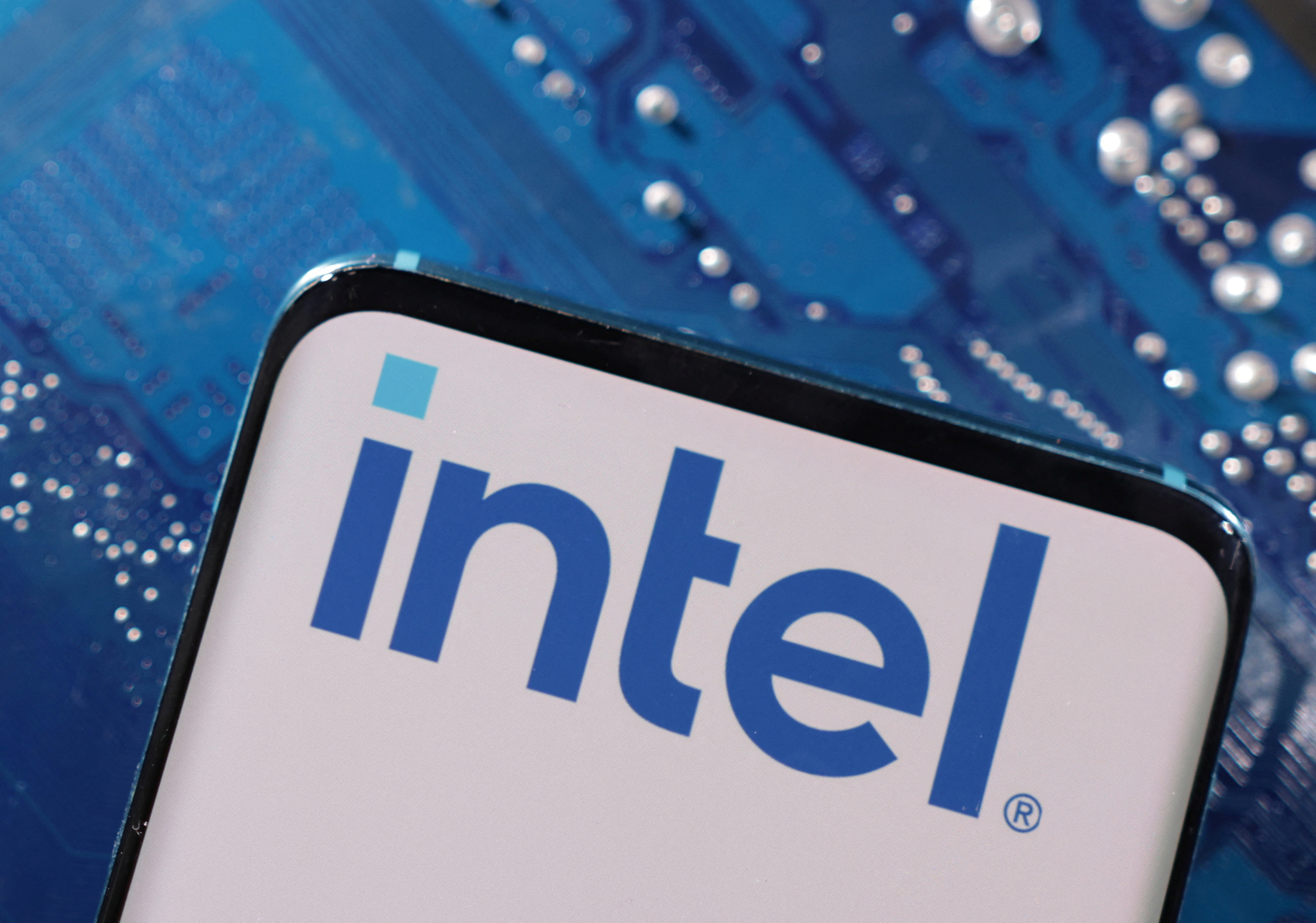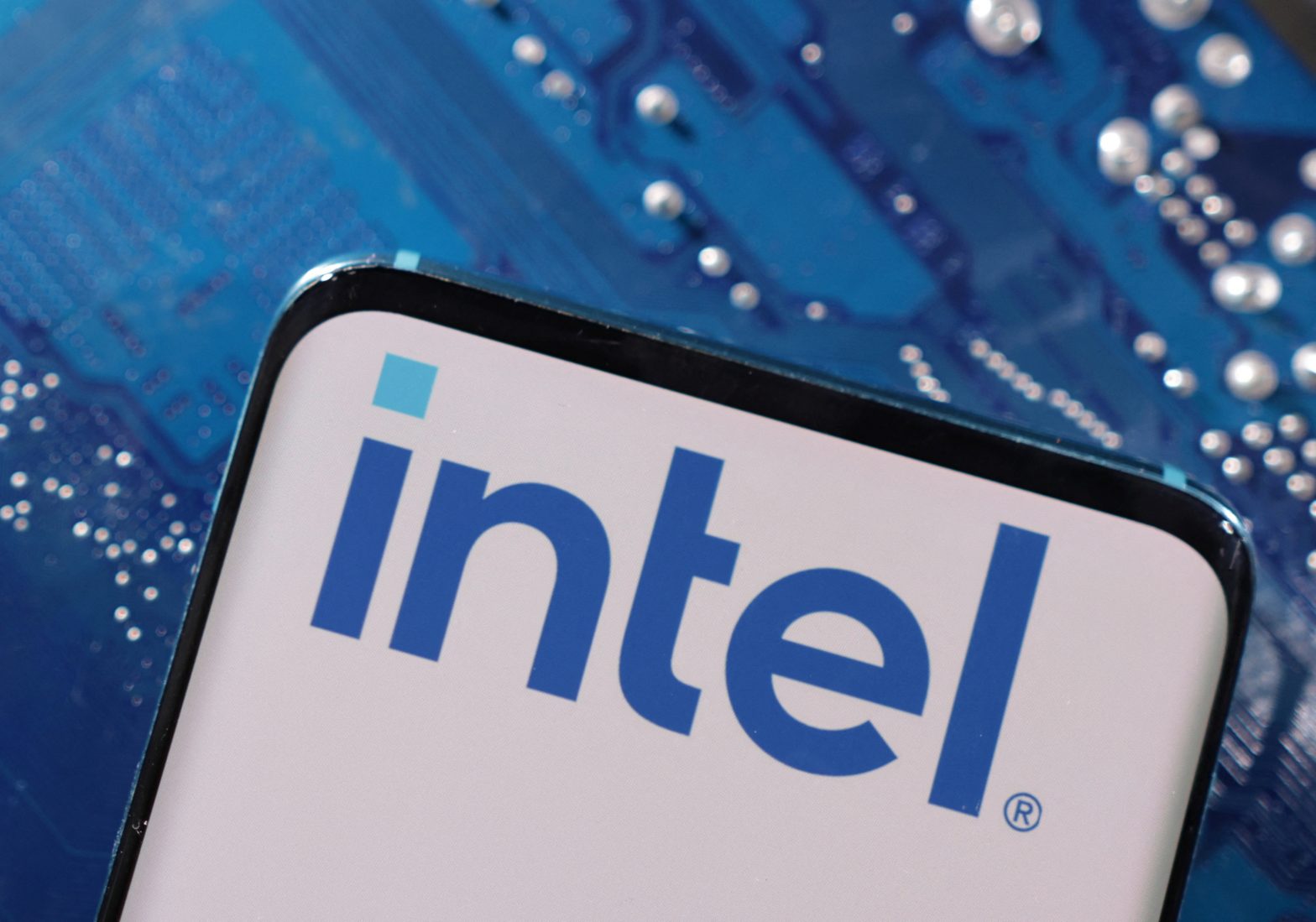
A smartphone with a displayed Intel logo is placed on a computer motherboard in this illustration taken March 6, 2023. REUTERS/Dado Ruvic/Illustration Acquire Licensing Rights
DUBLIN, Sept 29 (Reuters) – Chipmaker Intel (INTC.O) said on Friday it had begun high-volume production using extreme ultraviolet (EUV) lithography machines at its $18.5 billion plant in Ireland, calling it a “landmark” moment as it seeks to regain ground on its rivals.
The EUV tools, which are theoretically precise enough to hit a person’s thumb with a laser pointer from the moon, will play a key role in meeting Intel’s goal of delivering five generations of technology in four years, the U.S. company said.
The effort in Ireland is Intel’s first attempt at high-volume manufacturing using EUV technology.
Once the world’s leading chip manufacturer, Intel has lost the lead but says it is on track to regain it with manufacturing technology it says will rival the best from Taiwan Semiconductor Manufacturing Co (2330.TW).
“This is a landmark for Intel and the semiconductor industry as a whole,” Ann Kelleher, Intel’s general manager of technology development, said in a statement.
“The transfer of Intel 4 process technology into high-volume production in Ireland is a giant step toward enabling leading-edge manufacturing in Europe.”
The plant, located in the town of Leixlip outside Dublin, is the first high-volume location for its manufacturing process called Intel 4 that uses EUV. The advanced manufacturing technique will produce its forthcoming “Meteor Lake” chip for laptops, which will pave the way for AI PCs.
Intel typically finalises new manufacturing processes at a research and development site in the Portland suburb of Hillsboro, Oregon. Once fixed, Intel exports the manufacturing template to other sites around the world, such as the one in Ireland or Arizona in the U.S.
The EUV machines, made by Dutch manufacturer ASML (ASML.AS), are as big as a bus and cost around $150 million each, one of the most expensive tools in the world.
Beyond its existing facilities in Ireland, Intel plans to build a big chip complex in Germany and semiconductor assembly and test facility in Poland. The new sites will benefit from eased funding rules and subsidies in the EU as the bloc looks to cut its dependence on U.S. and Asian supply.
The three facilities will help create a first-of-its-kind end-to-end advanced semiconductor manufacturing value chain in Europe, Intel said.
The new factory will double Intel’s manufacturing space in Ireland, where it is one of the country’s largest multinational employers with 4,900 people, around half its European workforce. It plans to add another 1,600 jobs at the plant over time.
Reporting by Padraic Halpin in Dublin, Ireland, and Max A. Cherney in San Francisco.; Editing by David Gregorio
Our Standards: The Thomson Reuters Trust Principles.
